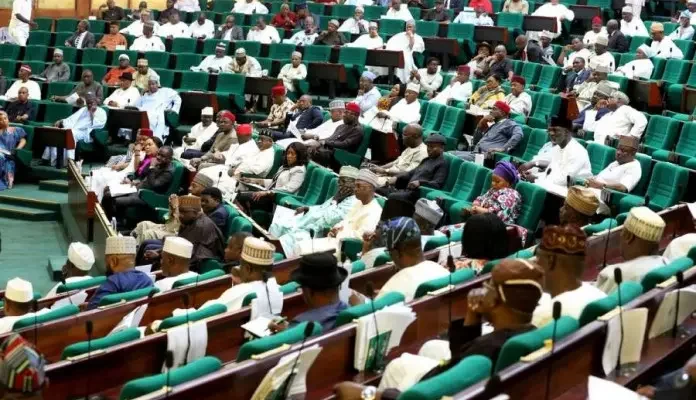552
By Tracy Moses
The House of Representatives has urged the Federal Government to declare a state of emergency on the deteriorating industrial estates of Bompai, Sharada, and Chalawa in Kano State, decrying their alarming decline despite their historical role as pillars of Nigeria’s manufacturing sector.
The resolution followed the adoption of a motion presented by Hon. Hassan Shehu Hussain during plenary on Tuesday, May 14, 2025.
Presenting the motion, Hon. Hussain lamented the abandonment of the once-thriving industrial zones. “These estates used to be the lifeblood of Northern Nigeria’s economy,” he said. “They hosted over 1,000 factories across critical sectors like textiles, pharmaceuticals, leather, and automotive components. Today, they are mere shadows of themselves, glorified storage warehouses instead of production centres.”
He recalled that as far back as 2014, the Kano chapter of the Manufacturers Association of Nigeria (MAN) had raised the alarm that over 400 factories in Bompai and Sharada had shut down due to worsening infrastructure, epileptic power supply, and policy inconsistencies.
“Despite policy blueprints such as the Economic Recovery and Growth Plan of 2017, there’s been little to no real intervention on the ground,” Hussain said. “The continuing collapse of these zones is contributing to mass unemployment and youth restiveness in the North, with dire implications for national security.”
He added: “The removal of fuel subsidies has further deepened the operating costs for the few companies still standing. It’s like punishing resilience.”
Lawmakers across party lines expressed support for the motion, describing the Kano industrial estates as critical to the nation’s economic diversification drive.
“This is not just about Kano , it’s about Nigeria,” one lawmaker noted during the debate. “Reviving these hubs means reviving made-in-Nigeria goods, jobs for our youth, and pride in our industrial legacy.”
The House, in its resolution, called on the Federal Government to work closely with the Federal Ministry of Industry, Trade and Investment, the Bank of Industry, and other relevant bodies to provide targeted credit facilities for resuscitating the moribund factories.
The lawmakers also urged the government to discontinue incentives that promote the importation of goods that can be manufactured locally. “We must protect our own industries from unfair foreign competition,” another representative argued.
Additionally, the House directed its Committee on Industry to liaise with key stakeholders, including the Federal Ministries of Works, Trade and Investment, the Federal Inland Revenue Service (FIRS), and the Kano State Government, to address issues of taxation, infrastructure decay, and unreliable electricity.
The House further mandated its Committees on Industry and Legislative Compliance to ensure that the resolutions are implemented without delay.
“With political will and coordinated action, these estates can rise again,” Hon. Hussain concluded. “We cannot continue to watch our industrial heritage die.”



